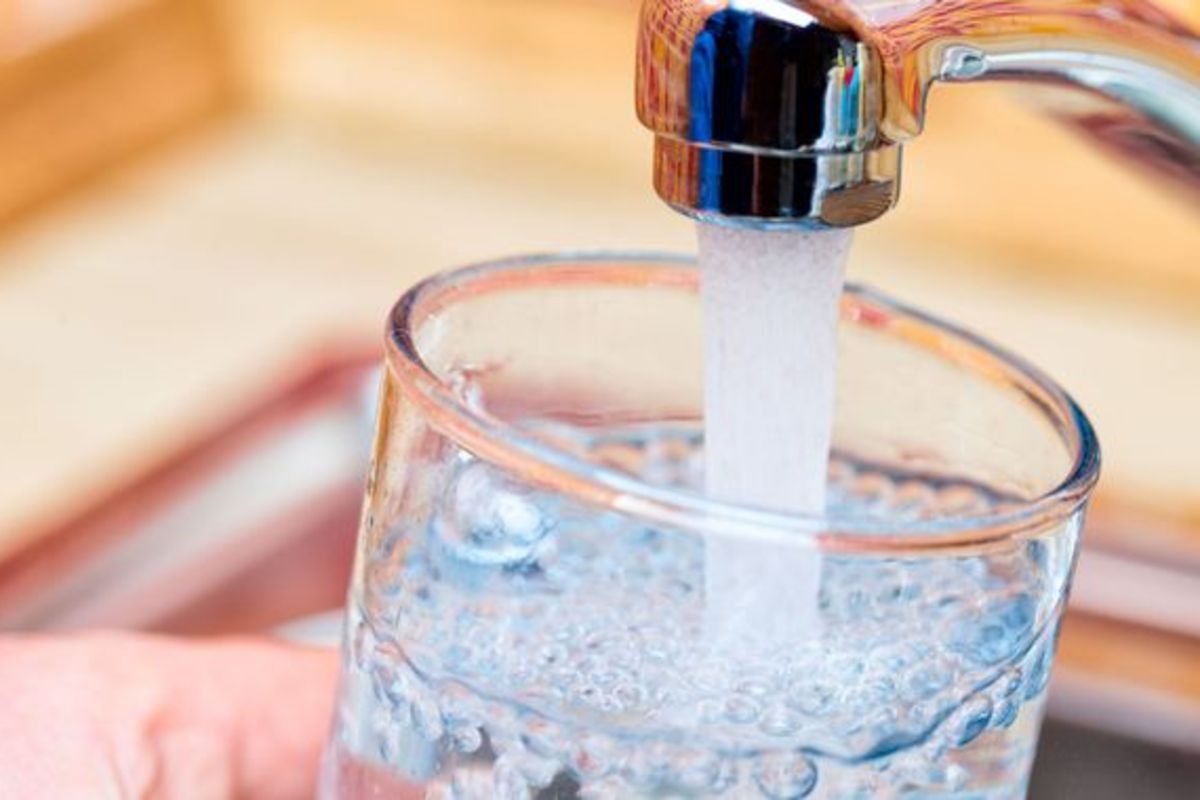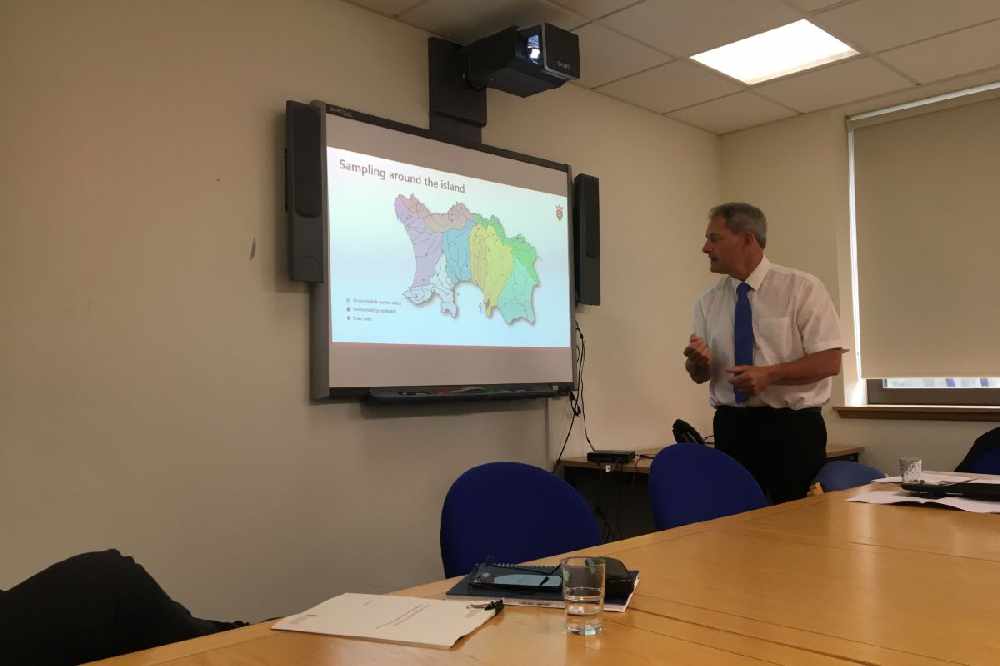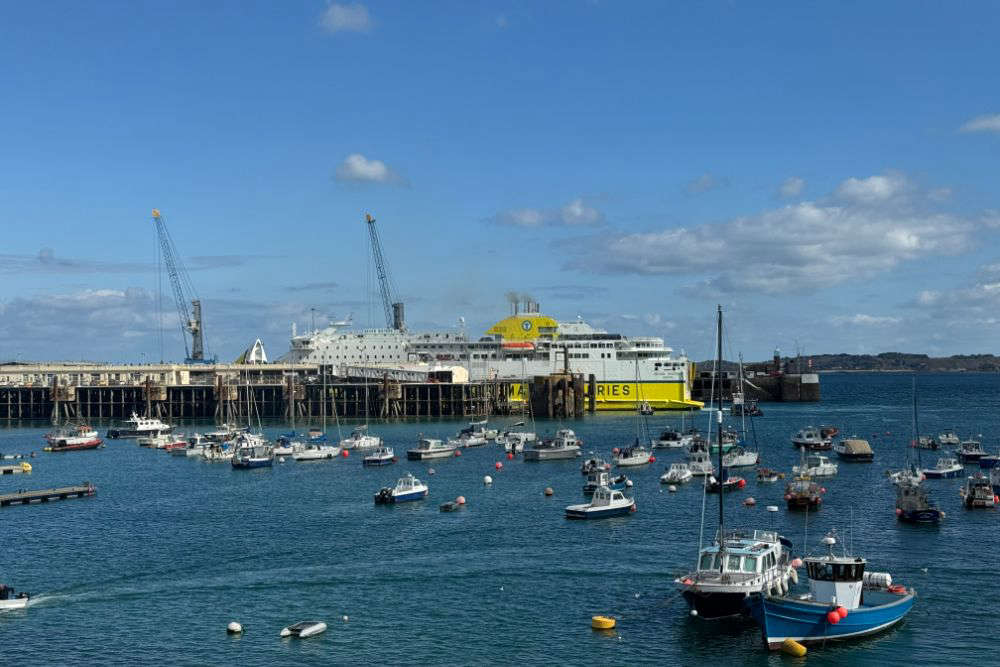
Water in boreholes and wells is safe to drink, despite containing small trace levels of the chemical PFOS.
Tests were carried out after the pollutant was detected in a borehole in St Peter.
Levels were extremely low in most places, but stream levels around the south of the Airport and Pont Marquet are higher and require further inspections.
Testing also found that half of households with private water supplies not on mains water have supplies that exceed EU and local drinking water nitrate limits.
Director of Environmental Protection Dr. Tim Du Feu says boreholes are very risky - and require regular checks.
"A recommendation from our colleagues in environmental health is to get those tested every year and to treat as necessary. It's quite astounding the low numbers and low percentage of people getting their boreholes tested each year.

Dr Tim Du Feu addressing the media on the testing of PFOS in boreholes across the island.
"We will be putting in systems so people as well as chemical contents, nitrates and bacterial levels for example, they can also test for pesticides and PFOS."
We're being reassured that there's absolutely no risk on main water supplies whatsoever. There's around 3,300 boreholes in Jersey.
It is thought that PFOS has a presence in rainfall - further tests will be carried out on that. It has been confirmed though that there are no traces in potatoes or milk.
Medical Officer for Health, Dr. Susan Turnbull, is glad to rest people's fears over the PFOS situation.
"We found the exact same very low levels in all of the samples tested across the island, so that to me was the first sign of an element of reassurance that we didn't have anything out of the ordinary happening in the boreholes that are outside what we call the original plume area which was a firefighting foam pollution incident a few decades ago."
18 recommendations have been made for Environment Minister Deputy John Young to consider.
Some of the nitrate levels were over the prescribed legal limit of 9.1ug/l (a precautionary level based on the limit of detection).
Dr. Turnbull says the nitrate levels are unacceptably high in many areas - and can cause very serious health harms including links to bowel cancer and disorders of the thyroid gland.
"People who've got boreholes really need to be aware that there's potential health harm in the water. Not something you can see, because nitrates fully dissolve in the water. The only answer is to get them tested regularly.
A briefing is being held next Monday (15th July) at the St Peter Parish Hall from 7pm to address any concerns of residents whose water supplies were tested. Tickets are available on EventBrite.


 Civil Service recruitment freeze extended
Civil Service recruitment freeze extended
 Industry rumours of Bergerac second series
Industry rumours of Bergerac second series
 DFDS brings in replacement ship for Portsmouth sailings
DFDS brings in replacement ship for Portsmouth sailings
 100 days until Orkney Island Games begin
100 days until Orkney Island Games begin
 £200k padel facility coming to Les Ormes in May
£200k padel facility coming to Les Ormes in May
 Jersey Opera House opening show announced
Jersey Opera House opening show announced
 Two islanders trapped in a lift rescued from sixth-floor fire on the Esplanade
Two islanders trapped in a lift rescued from sixth-floor fire on the Esplanade
 Rooftop bar, climbing wall and concert hall in £110m Fort Regent plans
Rooftop bar, climbing wall and concert hall in £110m Fort Regent plans

